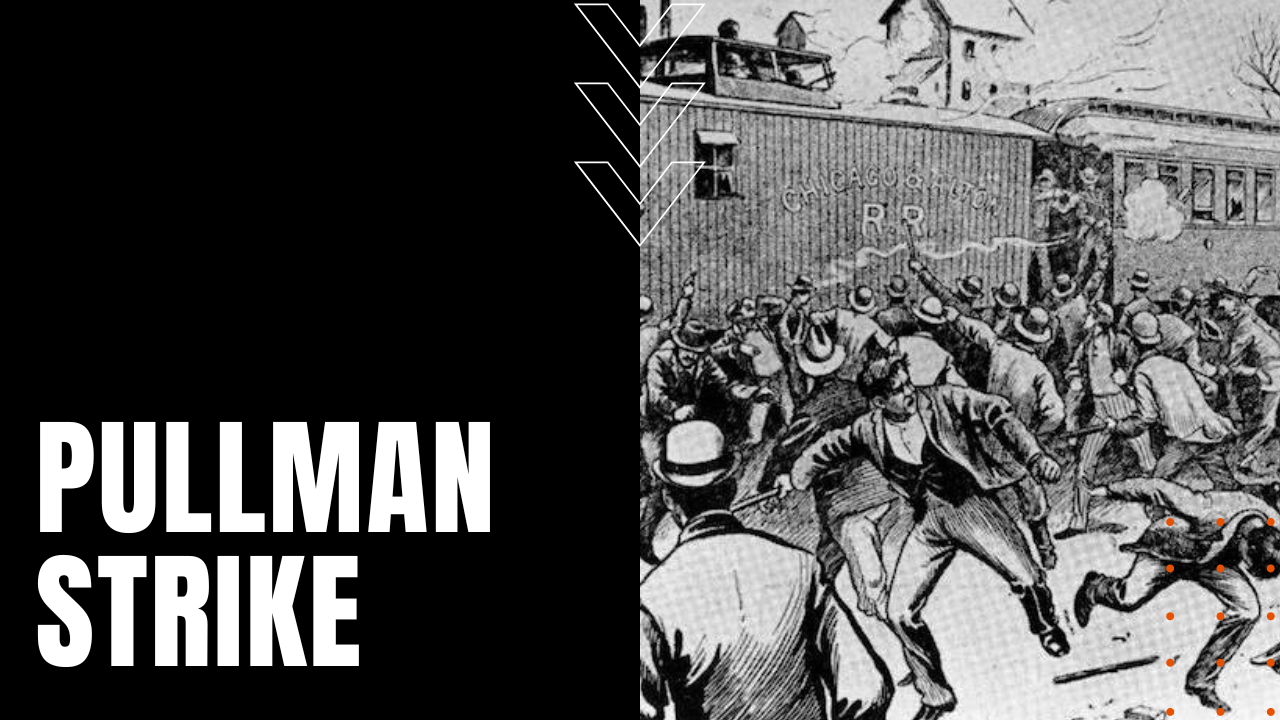The Pullman Strike of 1894

During the Panic of 1893, engineer industrialist George Pullman laid off hundreds of workers employed by his Pullman Sleeping Car Company, slashing wages to his remaining workeforce by 30 percent. Furthering the hurt to his employees, Pullman refused to lower rents and store prices in the company town of Pullman, some fifteen miles south of downtown Chicago, obliging the entirety of his workforce to walk off their jobs in May of 1894. A month later, in a show of solidarity with Pullman workers, the American Railway Union led by labor activist Eugene Debs, boycotted any trains employing Pullman’s luxury sleeping cars.
Rail Traffic Halted
Effectively halting all rail traffic and commerce in 27 states west of Chicago, officials from the General Managers Association, which represented Chicago-based railroad companies, petitioned the federal government to shut down the strike, and while labor unions were a major constituency of the Democratic Party, to show federal support of labor unions, Democratic President Grover Cleveland encouraged Congress to pass legislation in June, making the first Monday in September the legal holiday of Labor Day.
Mass Property Destruction
The federal government’s gesture failed to quell the violence that followed, when on June 29th, buildings and locomotives were set on ablaze during a speech by Debs at Blue Island Illinois, prompting U.S. Attorney General Richard Olney to seek a federal injunction against the strike and its leadership. A day later, Cleveland ordered federal troops to Chicago, despite angry protests from Illinois’ pro-labor governor, John Peter Altgeld, who had already ordered state militia troops to control the destructive actions of striking workers.
Strike Turns Deadly
Despite the governor’s stance that Cleveland’s orders were unconstitutional, on July the 6th, rioters destroyed hundreds of rail cars in South Chicago’s sprawling rail depot, leading to a July 7th bloodbath, when National guardsmen opened fire on the angry mob, killing an estimated 70 strikers, while injuring 57 others. While the strike was declared over in early August—leadings to Debs’ arrest and six-month imprisonment—the bloody struggle between labor and capital marked a period of rising public awareness of America’s labor movement, which became a foundational element of the Progressive Era, making the Pullman Strike of 1894, a major uptick in federal oversight of a nation’s economic and social equity.
